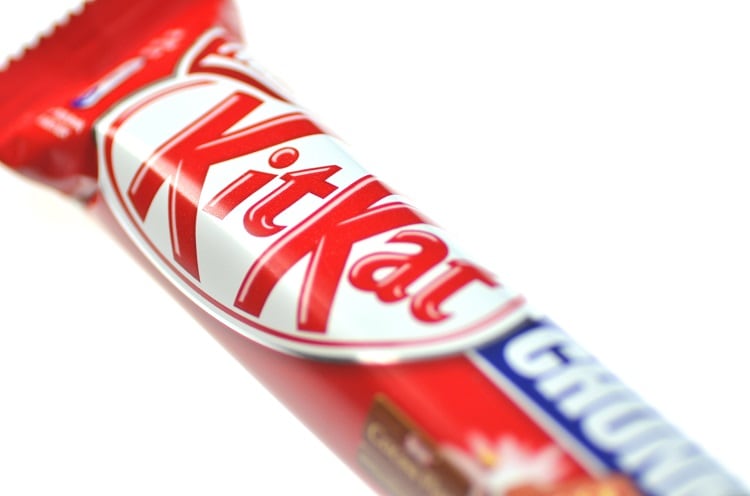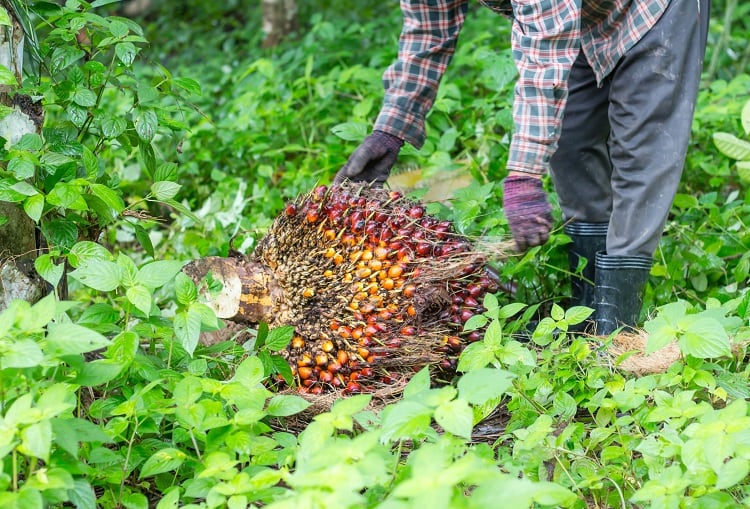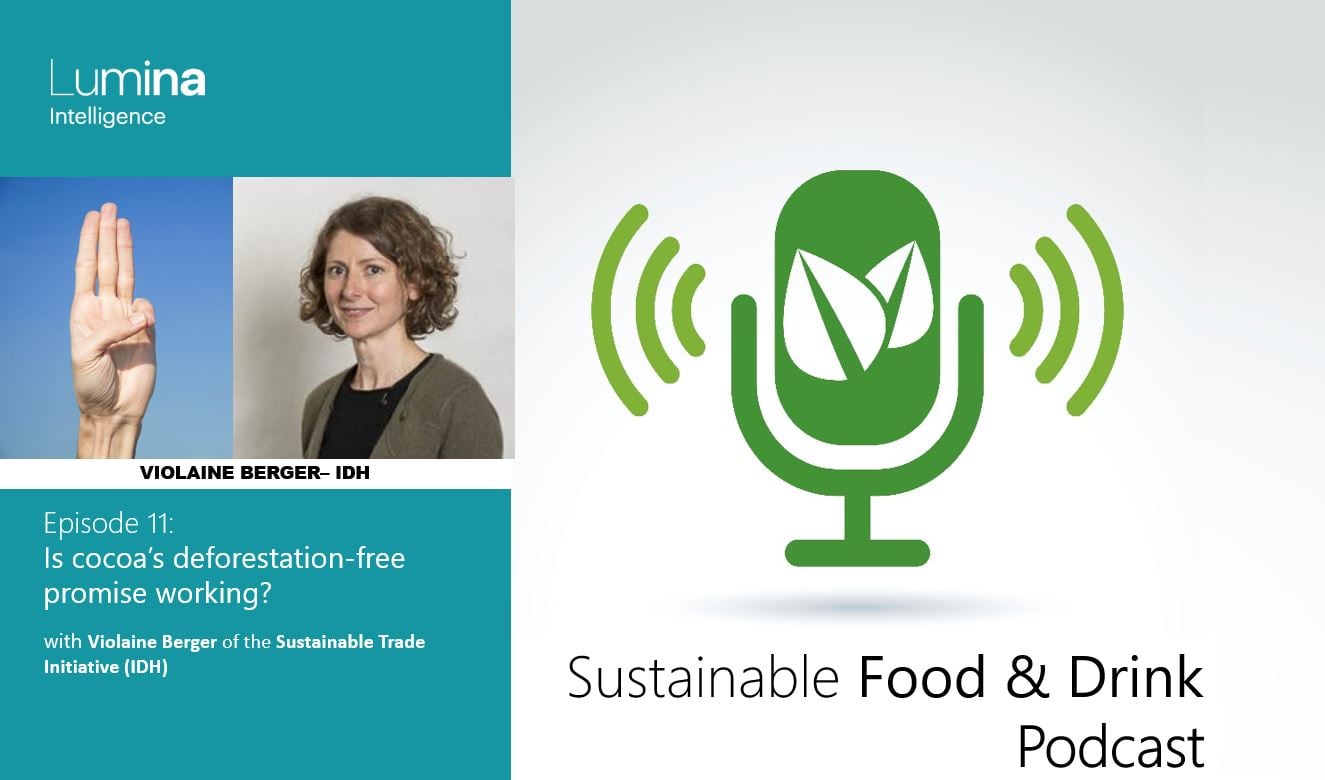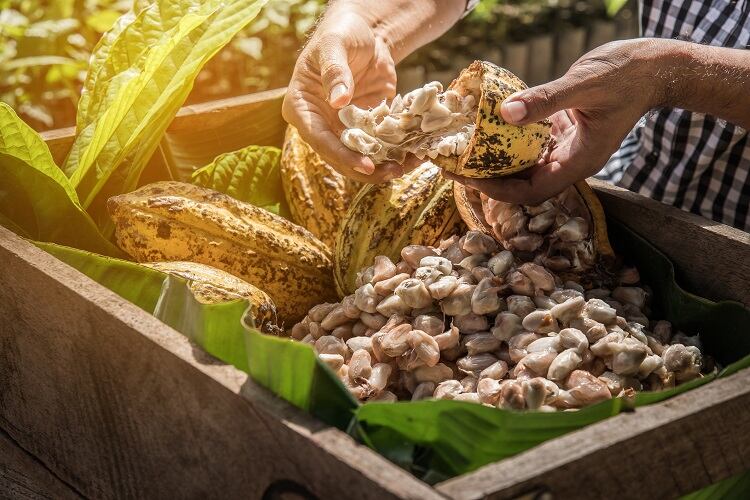Nestlé UK & Ireland has announced that from October 2020, it will move its cocoa and sugar sourcing accreditation for KitKats from Fairtrade to the Rainforest Alliance.
The transition will allow the food giant to harmonise certification for confectionery products within its global portfolio. “We have a very large portfolio of confectionery products globally, and the rest is certified by the Rainforest Alliance/UTZ, so it makes sense for us as a business to have one scheme for responsible sourcing across the board,” a Nestlé spokesperson told FoodNavigator.
The company said it has a long-standing partnership with the Rainforest Alliance, and the two will continue to work together to build farmer resiliency, tackle key social and environmental issues, and empower farmers to negotiate for themselves in the global partnership.
These are all, said Nestlé, ‘fundamental’ to the long-term sustainability of the sector.
Fairtrade fears for farmers
The switch marks the end of a decade-long sourcing partnership for Nestlé and Fairtrade, and the latter fears the decision could have devastating consequences for small-scale farmers
“The move will mean a loss of almost $2m (£1.95m) in Fairtrade Premium each year for co-operatives in Côte d’Ivoire, Fiji and Malawi, representing 27,000 small scale producers,” noted the Foundation. “This income is a real lifeline for some of the world’s poorest farmers.”
Specifically, Fairtrade Premiums provide ‘tangible support’ for farmers, who have full control over how they choose to invest in in their communities in farms.
Concerning sugar, Nestlé’s decision means that all future purchases of sugar will be from European sugar beet producers, explained the Foundation, meaning that cane sugar farmers will also lose the Fairtrade Premium. Beyond that, they also risk losing access to market their sugar, the Foundation continued.
“Future purchases of cocoa may be from the same co-operatives, but only as part of Nestlé’s own Cocoa Plan initiative, meaning no Fairtrade Premium.”
Nestlé urged to reconsider: ‘Keep KitKat Fairtrade’
Fairtrade has publicly asked Nestlé to ‘listen to farmers’ and return on its decision.
“Fairtrade exists to represent farmer voices, standing behind them as they fight for their rights,” said the Foundation’s CEO Michael Gidney. “Now, more than ever we need to act as a global community and take actions that are steps forward as we build a better future.”
Gidney continued: “We urge Nestlé: listen to farmers, do not choose this moment of global crisis to exacerbate the inequalities of the cocoa industry. Be part of the solution and keep KitKat Fairtrade.”
The Ivorian Fair Trade Network, which represents farmers from Côte d’Ivoire, is similarly hoping Nestlé has a change of heart.
Writing on behalf of Ivorian cocoa farmers, chairman of the board of director of the Ivorian Fair Trade Network, Atse Ossey Francis, said: “It is with deep regret and deep concern that we have learned that after proudly producing cocoa for KitKat in the UK for a decade, small cocoa farmers in Côte d’Ivoire will no longer enjoy the benefits of selling their cocoa on Fairtrade terms. Nestlé is one of the leading buyers of Fairtrade certified cocoa through its KitKat brand and we are grateful for all this decade of partnership where we have contributed to the success of Nestlé.
“A non-Fairtrade trade relationship means regression and continued poverty.”
Nestlé ‘working hard’ to mitigate fallout
The food giant said it is aware the move will impact some farmers, and it is ‘working hard’ to mitigate these fallouts.
The company is providing financial assistance to help Fairtrade farmers certify their farms to the Rainforest Alliance Sustainable Agriculture Standard if they wish, as well as investing in a living income pilot and community projects in producing regions.
“Nestlé will be maintaining the same level of cocoa spend for the 2021-21 season,” confirmed global technical manager for Nestlé Confectionery, Simon Billington.
So while the business won’t be paying the Fairtrade premium, it will be paying more for cocoa in the coming season than that paid this season with Fairtrade.
Specifically, for the 2020-21 season on KitKat 2-finger and 4-finger, Nestlé will be paying ‘over and above’ the farm price for cocoa which will be decided by the Ivorian and Ghanaian governments near the start of the cocoa buying year.
Beyond these costs, the company will pay $400 per tonne (approximately $2.8m (2.2m the Living Income Differential, as well as the Rainforest Alliance premium of $60m per tonne, which goes direct to the farmer.
“We will be investing in a series of initiatives to support farmers and our cocoa growing communities over the next two years, including £1m to develop an industry-first living income pilot and a further £500,000 on community projects,” Billington elaborated.
Concerning sugar sourcing, Nestlé said it is sourcing ‘almost all’ of its Nestlé UK & Ireland sugar from UK sugar producers, in line with its ‘continued focus on increasing local agricultural sourcing where possible’.
The food giant is ‘very conscious’ that sugar producers, particularly in the African, Caribbean and Pacific group of countries ‘face an uncertain future’ within global sugar markets, a spokesperson told this publication.
“This is why we have provided an additional transitional support fund of £100,000 to those Fairtrade sugar producers in Fiji and Malawi who have been impacted by the change.”





